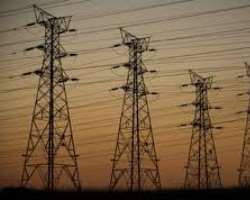Electricity: Paying more for less - Nigerian Tribune

Notwithstanding the oft-repeated objection of relevant government agencies, the successor companies of the defunct Power Holding Company of Nigeria (PHCN) have been increasing electricity tariff. Receipts being issued to consumers show that the Ibadan Electricity Distribution Company (IBEDC) for example has raised its tariff rate – for three-phase consumers – from N12.91 to N16.44 with effect from last month. The fixed charge that has been a constant subject of controversy, has also been upped from N500.00 to N650.00 per month. The new owners have so far not brought about any improvement in power supply. They have not even been maintaining the poor level of performance which obtained when the utility was under the management of the government-owned PHCN. They have, however, been foisting higher tariff rates on their captive consumers.
The Director-General of the Bureau of Public Enterprises (BPE) Benjamin Dikki on Tuesday, July 23, in Lagos re-echoed the official position that the agitation of the new owners of the utility for what they regard as a cost effective tariff would not be entertained until a significant improvement in power supply has been achieved. The Nigerian Electricity Regulatory Commission (NERC) has, at different times, taken the same position. In the face of deteriorating service, the successor companies have brazenly disregarded the stand of the government by increasing the unit price of electricity and forcing consumers to pay more for services not rendered.
The prevailing situation in the power sector clearly defies comprehension. The privatization of the power sector was loudly and incessantly touted as the long-awaited solution to decades of inefficient service. Nigerians were given the impression that the private investors would be coming to work wonders. The Minister of Power, Professor Chinedu Nebo, repeatedly raised the people's hopes that an end to epileptic supply of electricity was in sight. At a time, he gleefully said generator dealers would need to consult their pastors for special prayers because the collapse of their business was imminent. And recently, the minister said while receiving a delegation from India that a meeting of stakeholders in the power sector would soon be called to fashion out how to achieve a target of 10,000 megawatts by December this year. Times without number, targets were similarly set only to be followed by catalogues of excuses to explain away failure. There have always been promises of remarkable changes which regretfully have each time been for the worse.
In spite of privatisation and the promises of dramatic improvements, power supply has been on the decline. The investors have not been able to find an answer to the problem of gas supply to the thermal plants. The usual complaints about low water level in the hydro-electric power stations have persisted, just as hitches have continued in the transmission and distribution networks. There is no evidence that an overhaul of the entire system that will guarantee uninterrupted flow of current has taken place. The new owners have dispensed with the services of a substantial percentage of the staff they inherited from the PHCN but have not brought in replacements or expertise that can compensate for the number that has been laid off. This clearly explains why their performance has been more woeful than that of the PHCN which they were brought in to replace.
It has for long been part of the credo of Nigeria's ruling class that government has no business in business. The massive corruption and consequent collapse of government-owned enterprises gave rise to this belief and led to the conclusion that privatisation is the perfect answer. The wilful and mind-boggling mismanagement that has taken place in banks and other private concerns provide ample evidence that there is corruption in every facet of Nigeria's national life. It has also deflated the argument that privatisation, without a new orientation, can bring about efficiency and commitment.
That the privatisation of power supply has so far been an unpleasant experience cannot be a moot point. From all indications, the primary objective of the investors is the rate of returns which they have elevated above service delivery and the interest of the people. The situation has apparently been worsened by the fact that the institutions entrusted with the responsibility of overseeing the performance of the investors have not been giving a good account of themselves. They have been looking rather helpless while electricity consumers are being fleeced. For both domestic and business purposes, the expenses being incurred on alternative sources of power supply have continued to grow while the new owners of the public utility have, at the same time, been forcing the people to pay more for less. Nigerians have been paying for the endless mismanagement of the country's oil through frequent increases in fuel price. New investors who have brought nothing positive to the power sector are forcing the people to pay more for poorer service. For how long will Nigerians remain hapless victims of exploitation? It is high time the rip-off stopped.
